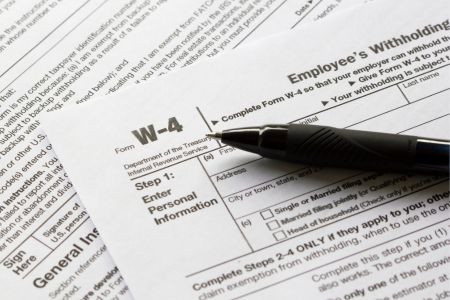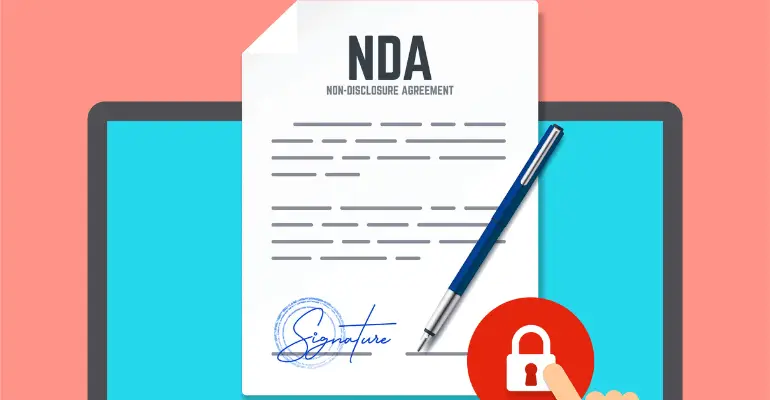How Much Can You Sue Your Employer for Misclassification?

Misclassifying employees can cause serious short- and long-term financial consequences. The practice deprives you of wages you have earned and deserve, the benefits employees are afforded under the law, and important employment-related legal protections.
Misclassification is serious, and both federal and state laws address the practice through significant penalties. Below you will learn how your employer can misclassify you, the financial damages you might be owed if this happens to you, and your legal rights to sue your employer — as well as the time you have available to do so.
Asserting your rights in a situation involving misclassification may require legal action. These lawsuits are often complex, but having a skilled employment law attorney at your side can make the process more accessible to you.
Understanding Misclassification of Employees
Misclassification occurs when your employer does not pay you wages or benefits as they should, given your true employment status. While some employers may engage in misclassification because they do not understand the law, others misclassify employees deliberately as a way to save money and protect the company’s bottom line.
Employers who misclassify employees are potentially violating several federal and state laws. These laws impose penalties for engaging in this practice and provide aggrieved workers compensation for the harm they suffered as a result.
Can I Sue My Employer for Misclassification?
You may be wondering, “Can I sue my employer for misclassification?” If your employer does not pay you the wages or benefits required by the nature of your employment, you may have a cause of action for misclassification. Evidence that may suggest you are being misclassified and eligible to file a lawsuit includes:
- You are not receiving benefits despite otherwise being treated as an employee
- Your employer is forcing you to work overtime without paying you appropriately
- Your employer issues you a 1099 while strictly controlling how or when you work
A misclassification suit typically does not cover general unhappiness with your employer’s benefits package or your belief that the value of your work is not reflected in your pay.
Do not be deterred from speaking with an employment lawyer just because your contract appears to support your employer’s actions. An employment contract is not dispositive of any issue, and your misclassification suit may still proceed even if the contract lists you as an “independent contractor” or an “exempt” employee.
Factors Affecting Damages for Misclassification of Employees
A misclassification lawsuit can result in an order against your employer to pay you damages. The amount of these damages for misclassification of employees, and the total dollar figure your employer may have to pay, will depend on a number of factors.
A primary factor will be how long you were deprived of the pay you were legally entitled to receive. The longer the misclassification occurs, the higher the damages and penalties that are assessed.
Whether your employer’s actions were willful or part of a pattern of behavior will also play a role in the damages they may have to pay. If this factor is present, your employer might have to pay you additional civil penalties as compensation.
Common Misclassification Scenarios
Misclassification can take many forms. One of the most common ways employee misclassification occurs is when your employer categorizes you as an “independent contractor” instead of an “employee.” This alleviates the employer’s obligations to withhold taxes for you and pay you benefits.
An employer may also misclassify a non-exempt worker as an exempt employee. Employees who are “exempt” are not covered by wage and hour protections in the law, whereas non-exempt workers are. By misclassifying workers in this way, an employer can avoid paying you overtime and for meal and rest breaks.
Another common misclassification scenario involves employers who misclassify full-time workers as part-time employees or workers who should be paid an hourly wage as salaried employees. In most cases, employers do this to avoid paying overtime or benefits to their workers.
Types of Damages for Misclassification of Employees
By initiating legal action, you can recover damages to compensate you for your losses. There may also be statutory penalties levied against your employer for each day a misclassification violation continues.
How much can you sue an employer for misclassification? The available damages you might recover include the following:
Lost Wages and Overtime
If you were forced to work through meal or rest breaks for which you should have been paid, you could be compensated for the value of those breaks. Additionally, if you were not paid an overtime rate despite working hours beyond the 40-hour work week, you can seek these lost wages through your lawsuit.
You may even be eligible to recover up to double the amount of wages of which you were deprived. For example, if your employer did not pay you $5,000 in overtime pay over the course of a year, some suits will allow you to recover up to $10,000 for your lost wages.
Benefits and Retirement Contributions
Your employer may offer — or be obligated to offer — certain benefits and retirement contributions to employees. If that is the case and yet you did not receive those benefits due to misclassification, you can also recover the value you were denied.
For example, if you were misclassified as an independent contractor and your employer matches up to 20 percent of employee contributions to the employee’s 401k account, you can seek compensation for the missing contribution matches you should have received.
Emotional Distress and Punitive Damages
Damages for emotional distress compensate you for the mental stress caused by your employer’s actions. Punitive damages are designed to punish your employer for their actions and can be available in cases of egregious conduct.
Punitive and emotional distress damages are not available in all misclassification lawsuits. Your Florida employee rights attorney can advise you on whether you can pursue either or both of these types of damages in your case.
Other instances of misclassification can allow you to recover liquidated damages. Liquidated damages represent a fixed sum awarded as a presumptively reasonable compensation value.
Statutes of Limitations for Misclassification Claims
In a misclassification case, you may file a lawsuit under one of several federal or state statutes. These include the federal Fair Labor Standards Act (FLSA) or the Employee Retirement Income Security Act (ERISA), as well as Florida’s Minimum Wage Act.
Several factors determine which avenue to pursue damages through, including the applicable statute of limitations. The statute of limitations tells you how much time you have after a misclassification event to file your lawsuit.
Federal Statutes of Limitations
There are two statutes of limitations to be concerned with. The applicability of each depends on what damages you are seeking.
A misclassification suit that seeks unpaid wages or overtime would be brought under the FLSA, which has a two-year statutory period. If you are seeking unpaid retirement contributions and bring your claim under ERISA, there is a three-year statute of limitations.
Florida Statutes of Limitations
Claims for unpaid wages under the Florida Minimum Wage Act are governed by a four-year statute of limitations. This statutory period extends to five years if it is believed your employer’s actions were committed willfully.
Hiring an Employment Lawyer for Misclassification Claims
If you believe you have a misclassification claim against your employer, you should discuss your situation with a qualified Florida employment law attorney. An experienced attorney’s insights and resources can offer you several benefits and may impact the outcome of your claim.
How a Lawyer Can Help with Your Misclassification Claim
Misclassification claims, like other workplace issues, need to be investigated thoroughly. This includes speaking with witnesses who have knowledge of your situation and obtaining and reviewing documents relevant to your claim.
A skilled lawyer will know to do these tasks quickly and will have the tools to accomplish them swiftly, thereby expediting your claim. Your attorney can also represent you at any negotiations that may be held as well as in court.
In many cases, your employer may attempt to settle your dispute rather than risk going to trial. Your employment lawyer should have a background and skills in negotiations and be able to represent your interests during these discussions.
And if your attorney cannot reach a settlement that appropriately addresses your losses, they should be well-equipped to take your claim to trial. A comprehensive investigation coupled with litigation skills that have been honed in the courtroom allows your attorney to represent your claim and persuasively articulate your case to the court.
When to Contact an Attorney for Misclassification
You may be owed significant damages for a misclassification incident, including unpaid wages, overtime, and retirement contributions. How much can you sue an employer for misclassification depends on several factors, including the wages you should have earned, the length of time you were misclassified, and whether your employer’s conduct was intentional.
But your time to assert your rights is limited, and the process for doing so can be confusing. This makes it crucial that you speak with an experienced Florida employment lawyer as soon as possible. It is best to talk with an attorney quickly — when potential witnesses’ memories remain fresh and relevant documents can still be located.
With years of successful experience representing Florida workers in misclassification lawsuits, Wenzel Fenton Cabassa P.A. is a smart choice for employees looking to protect their legal rights.
Please Note: At the time this article was written, the information contained within it was current based on the prevailing law at the time. Laws and precedents are subject to change, so this information may not be up to date. Always speak with a law firm regarding any legal situation to get the most current information available.
Related Posts
Recent Posts
- False Claims Act Retaliation & Your Rights
- Fired for Being Pregnant? 5 Situations When You Should Call an Employment Lawyer
- Can My Boss Take My Tips? The Laws of Tip Ownership
- What Does “Meets FCRA Requirements” Mean?
- Can Your Employer Contact You While on Medical Leave? Know Your FMLA Rights in Florida
Contact Us

FREE HELP GUIDES
Dealing with unpaid wages, discrimination or wrongful termination? Get the information you need to protect your workplace rights. We offer employment law resources to help you fight for workplace justice.




